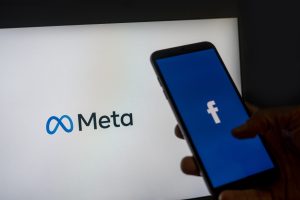The social media networks Facebook and Instagram removed more than 6 million posts from Filipino users in the lead-up to the country’s election in May, for breaching their content guidelines, according to the networks’ parent company Meta.
Melissa Chin, Meta’s content policy manager for the Asia-Pacific, told a virtual briefing on Friday that posts were removed from January 9 to May 16, 2022, for violation of a range of content policies.
The bulk of the removed Facebook and Instagram posts – about 5 million of them – were flagged for breaching the platforms’ violence and incitement policies. Chin said that these include posts pushing for “high-severity violence,” threats leading to serious injury and statements expressing violence related to voting, voter registration, or the results of the election, which saw a thundering victory for Ferdinand Marcos Jr.
In addition, around 670,000 posts were removed for containing hate speech, which Meta defines as a “direct attack on people based on their protected characteristics.” Another 550,000 posts were deleted for violating Meta’s bullying and harassment policies, including attacks on public figures using “severe sexualizing content, negative physical descriptions tagged to, mentioned, or posted on the public figure’s account.”
“We’re constantly trying to balance making people safe on the platform but also [give] breathing room for people to engage in political discourse and critical commentary about people on the public eye,” Chin told the briefing.
Chin held the virtual briefing to expand on the findings of Meta’s quarterly Adversarial Threat Report, in which the tech firm said that it had observed large-scale “inauthentic behavior” (IB) on its platforms in the Philippines.
The report stated that ahead of the May 9 election, “our investigative teams took down about 10,000 accounts for violating IB policy.” Based on these insights and those gleaned from earlier content removals, the report stated that Meta was able to use artificial intelligence to “automate the detection of these IB patterns to complement manual investigations.” As a result, it added, the company identified “hundreds of IB clusters in the Philippines and took action against over 15,000 thousand accounts” in the run-up to the election.
The scale of Meta’s content removals underlines the extent to which the digital sphere has become central to politics in the Philippines. At 82.85 million, the country has the sixth-largest body of Facebook users in the world and has seen misinformation and disinformation become a pivotal determinant in the country’s elections.
The phenomenon has been well documented in the case of Rodrigo Duterte, whose election to the presidency in 2016 was accomplished with a loyal “troll army” that boosted pro-Duterte narratives on social media, while smashing down opposition supporters. Duterte’s success prompted Katie Harbath, Facebook’s global politics and government outreach director, to refer to the Philippines in 2018 as “patient zero” in the global war against disinformation.
Prior to the election, Meta said that it was undertaking efforts to “expand our ability to remove harmful content and networks when we see them, connect more people to credible election information, promote digital literacy and civic engagement, and provide more transparency into political ads.”
Nonetheless, similar claims have been leveled at his successor Marcos, whose presidential campaign is accused of using social media to whitewash the legacy of his father, Ferdinand E. Marcos, who presided over a repressive era of Martial Law between 1972 and 1986, and to play down claims that his family continues to benefit from the billions pilfered from the state during his time in power.
The content removals by Meta hint at the scale of the disinformation that has swamped Philippine social media, and the efforts that even a company as well-resourced as Meta has been forced to expend in an attempt to keep up with it. Despite its growing ability to identify and remove hate speech and inauthentic behavior, the sheer volume of pro-Marcos revisionism and disinformation that coursed through the country’s social media networks during the election campaign would seem to suggest that Philippine politics will continue to play out in the mirrored hall of digital media for some time to come.

































